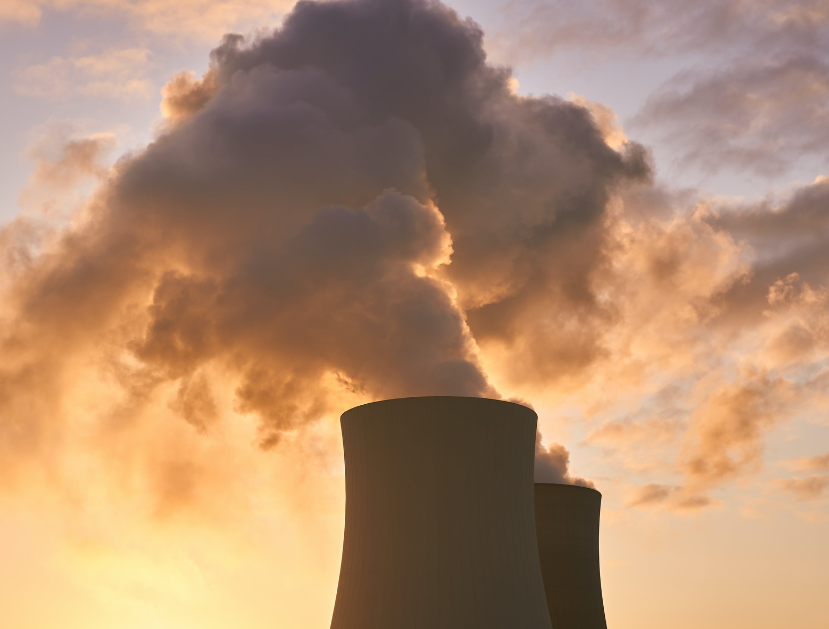The Supreme Court’s recent ruling in West Virginia v. EPA limits the power of the U.S. Environmental Protection Agency (EPA) to regulate climate-warming emissions from power plants across the United States. Under the decision, the EPA retains some important authority to lower emissions at individual power plants, however, it loses its power to advance more comprehensive policies that drive a shift away from fossil fuels across the United States.
The ruling is a significant setback for climate change. One of the primary causes of global warming is the burning of fossil fuels. Yet, calls to dramatically reduce fossil fuel production and avoid the worst consequences of climate change appear to be falling on deaf ears. Congressional negotiations on a clean energy package appear to have stalled once again. Further delay will make it almost impossible to meet climate goals articulated in the Paris Agreement of 2015, a legally binding international treaty on climate change. Inaction is creating a ticking time bomb for the environment and the public’s health.
The Supreme Court ruling ignored the serious implications of their decision for public health. Almost every organ system in our body is affected to some degree by fossil fuels. When burned, these ‘dirty fuels’ generate large amounts of particulate pollution, carbon emissions, and toxic substances that are present in the air that we breathe, the water that we drink, and the soil that we grow our food in. This tends to get lost in the discussion about fossil fuels and global warming.
There is an impressive list of epidemiologic studies that connect adverse health outcomes with exposure to myriad pollutants associated with fossil fuels. The World Health Organization (WHO) reports that burning fossil fuels is responsible for nearly one-in-five deaths worldwide. Emissions from combustion of gasoline, oil, and diesel fuel produce fine particulate matter (PM2.5). When these tiny particles are inhaled deep into the lungs they can trigger or worsen chronic disease such as asthma, bronchitis, and other respiratory problems. And while certain populations, such as those with pre-existing lung or heart disease, are particularly vulnerable to air pollution, everyone’s health is affected to some degree.
While individuals are resilient to many chemical, physical, and biological stressors, the endocrine system is especially vulnerable to toxic exposures, including endocrine-disrupting chemicals (EDCs). EDCs build up in the body over time and can interfere with any aspect of hormonal action—many of which are fundamental to all the systems of the body. What’s more, most synthetic endocrine disrupting chemicals are derived from chemicals associated with fossil fuel extraction, processing, or burning.
Global warming also impacts health by disrupting food systems, crop yields, rainfall variability, and especially increasing water- and vector-borne diseases. Warming temperatures are already altering the geographic range of disease-carrying insects, disturbing a delicate equilibrium and contributing to increases in malaria, yellow and dengue fever, and encephalitis. Vector-borne diseases continue to contribute significantly to the global burden of disease, and a warming climate increases the likelihood that global progress against these diseases will be much more difficult to achieve.
Excessive heat is a leading cause of weather-related illness and deaths, not just in tropical climates but also in cooler, northern geographic areas. Climate change, primarily caused by human-emitted greenhouse gas emissions, is causing heat waves to be more severe, frequent, and longer-lasting. Days before the official start of summer on June 21st, a massive heat wave swept across the U.S., making life very uncomfortable for more than 50 million Americans who were sweltering under heat advisories issued by the National Weather Service. Weather predictions are that temperatures will remain well above average in the coming months across much of the U.S.
The potential for harm to health will continue if we do not take action to reduce substantially our reliance on fossil fuels. Will Congress acknowledge the seriousness of global warming and pass a bipartisan bill to reduce our dependence on fossil fuels? Staying the course should not be an option.
The good news is that while federal action continues to meet roadblocks, many states are moving forward and scaling renewable energy sources, such as solar and wind, which can help reduce global warming and safeguard public health. What’s more, research from PSE Healthy Energy suggests that when states consider both the health and the climate implications of their energy system, they can design solutions that are more equitable and more affordable.
We are damaging human and environmental health by our continued reliance on fossil fuels. There are viable options that can make a difference in our health as well as that of our climate. The potential public health benefits of reducing consumption of fossil fuels more than outweigh the arguments for not doing so.
Madelon L. Finkel, PhD
President, The Madelon Global Health Foundation
Professor of Population Health Sciences
Weill Cornell Medicine















